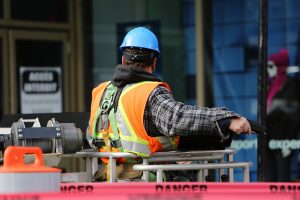At Nocti Business Solutions (NBS), we provide a variety of skill assessments for construction workers. As a provider of skill assessments, we understand the significance training has to any industry—especially construction. No matter the type of construction, each worker is a crucial contributor to helping the entire team finish the job. And, proper training is an essential factor for making that team and process as efficient as possible.
Why training is essential for construction workers
There are many reasons why effective training is essential for construction workers. First, and most importantly, safety. Construction work can be a dangerous scenario if onsite workers are not properly trained to keep the work area safe. Additionally, even though the skill set varies, workers should always pay attention to detail while maintaining physical and mental focus. That can be hard to do for workers without adequate training. An effective training program also allows workers to develop their skills further, even workers who already have experience. Furthermore, training ensures that each worker has the same level of skill and knowledge, creating a cohesive group working toward a common goal.
Different projects, different skills
Of course, not every worker will receive the same type of training. There are an extensive amount of jobs in the construction industry, each requiring specific skills, which is why we offer a variety of skill assessments for the construction industry.
- Building Construction Occupations
- Building Trades Maintenance
- Cabinetmaking and Millwork
- Carpentry
- Masonry
- Plumbing
OSHA-10 Safety Training
As previously stated, safety should always come first—which is why many states require OSHA-10 for private and public construction workers. The program, designed by the Occupational Safety and Health Administration (OSHA), teaches workplace safety and how to reduce job site hazards. It’s no secret that any given construction site has many hazards like power tools, equipment, the risk of falling, exposed piping, and more. To combat that, the OSHA-10 is a ten-hour commitment (available online) focusing on the following:
- Fall protection
- Personal protective equipment (PPE)
- Electrocution
- OSHA inspection procedures
- And more
Which states require OSHA-10 for construction workers?
Keep in mind, even if your state does not require OSHA-10, it is highly recommended. Some states may also require OSHA-30, a similar training program with a longer, more detailed focus.
- Connecticut
- Nevada
- Pennsylvania
- Massachusetts
- New Hampshire
- Rhode Island
- Missouri
- New York
- West Virginia
List provided by lancastersafety.com
Build a Superior Workforce with NBS – take the first step with our sample assessments

Four essential tips for training construction workers
Understanding their skill set and experience
When training any worker, it is imperative to recognize their prior skill set and experience to identify what they need to learn. Even if the worker has a great deal of experience, they may not be familiar with specific procedures that they will need to learn to do their job safely and efficiently.
Be visual
Everyone learns differently, but the construction industry is mostly hands-on work—making the job highly visual. Even if the training is not hands-on, using visual-aids while training has proven to resonate better with trainees. Visuals like hands-on examples, videos, posters, and infographics all make communication quicker and more straightforward, which is ideal for any training.
Buddy system
Partnering a new employee with an experienced worker is a remarkably useful tactic for both employees and organizations. It provides the trainee with someone to talk with and help them through stressful situations. It is also a structured knowledge share, getting the new employee up to speed on systems and procedures.
Safety first
Last tip, but certainly not least, is safety. In any training scenario, it’s imperative to ingrain safety into the mindset of workers. Without an understanding of safety procedures, processes, and standards, a worker is at a much higher risk for workplace injury, illness, or death. Keep in mind, safety training should take place whenever a worker’s duties change, no matter their experience level.
Technical Skill Assessments for Construction Workers
With NBS skill assessments, assess your workers to identify the areas where your staff excels and areas where they need help. With our test results, you’ll ensure that your training program adequately provides the necessary knowledge and safety training, creating a beneficial addition to your workforce. To learn more about our skill assessment tests for construction workers click here, and if you have questions about our assessment tests, please contact us today!

Recent Comments